Blogs
“When health meets heart, the conversation begins, and it starts here.
Knowledge that empowers. Stories that connect. Support that matters.”
~ DRM Wellness
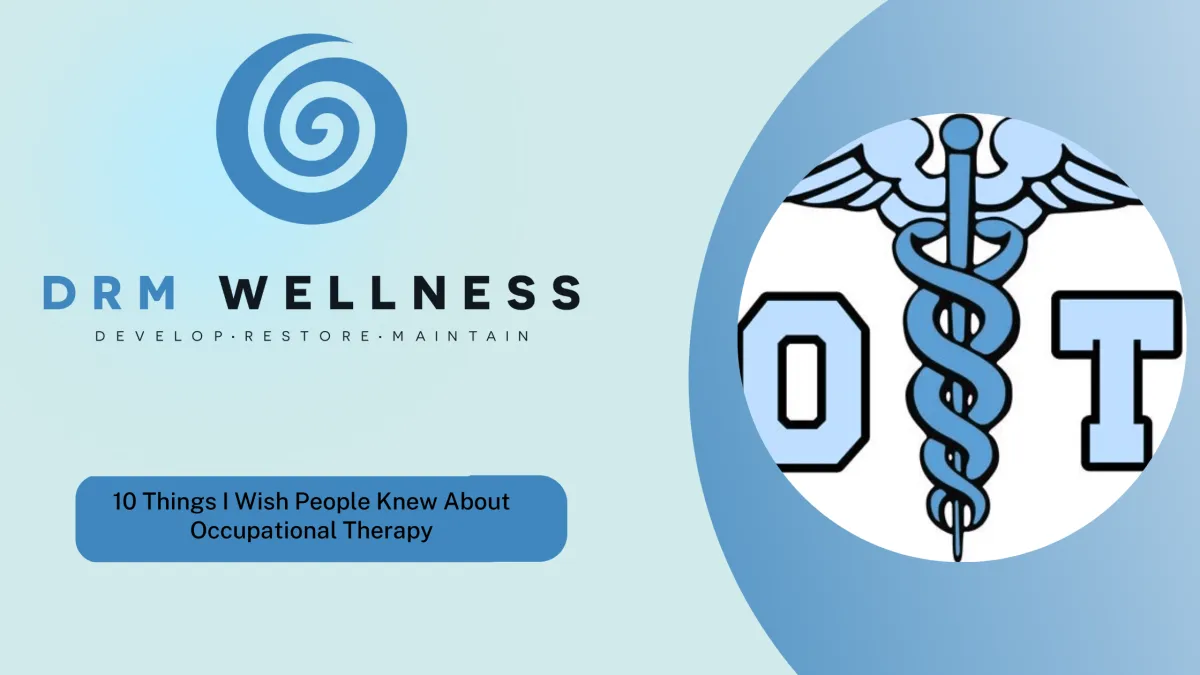
10 Things I Wish People Knew About Occupational Therapy
10 Things I Wish People Knew About Occupational Therapy
Occupational Therapy (OT) is one of the most misunderstood healthcare professions out there. As an OT, I’ve had more than my fair share of confused looks and follow-up questions like, “So you help people find jobs?” (Spoiler: no, we don’t.)
It’s an easy mistake to make, after all, the word “occupation” sounds like it’s about employment. But in our world, it means something bigger: the daily activities that give your life meaning. That includes everything from getting dressed in the morning to caring for your kids, managing your home, returning to work after an injury, or even enjoying your favorite hobbies again after surgery or illness.
Occupational therapists are trained to look beyond the diagnosis. We ask, what do you need to be able to do, and what’s getting in your way? Then we get creative about helping you overcome those barriers, whether they’re physical, emotional, environmental, or all of the above.
Whether you’re a curious client, a caregiver, or a fellow healthcare professional, here are 10 things I wish more people understood about the work OTs really do:
1. We Don’t Just Work With Injured People
OT isn’t just about recovering from an accident or surgery. Yes, we help people regain function after an injury, but that’s just one piece of the puzzle. We work with children who need help developing fine motor skills, adults with chronic conditions like arthritis or diabetes, individuals living with neurodivergent diagnoses like autism or ADHD, and seniors who want to stay safe and independent in their homes.
We support people adjusting to new bodies after major life changes, like bariatric surgery or a serious illness, helping them navigate mobility, endurance, and daily routines in a way that feels achievable. We also work with athletes, both youth and adults, on coordination, agility, motor planning, and injury prevention. Whether you're training for a sport or just trying to get back to feeling like yourself, we help fine-tune the skills that matter for performance and everyday life.
If there’s a challenge getting through the day, we’re here to help figure it out and make life more manageable and fulfilling, no matter your age, size, ability, or goal.
2. It’s Not About Jobs…It’s About Function
The word "occupation" refers to the activities that occupy your time and that looks different for everyone. For a child, it might be learning to tie their shoes or hold a pencil. For an adult, it could mean managing work responsibilities, grocery shopping without pain, or playing with their kids without needing to rest every five minutes. For someone recovering from surgery or illness, it may mean getting dressed independently, cooking a simple meal, or walking to the mailbox.
OT is about helping people do the things that matter most to them. It doesn’t matter if the task seems small or ordinary. If it’s something that brings purpose, dignity, or independence, we care deeply about helping you get there. Function is personal, and we tailor our support to your specific goals and lifestyle. After all, your version of a meaningful life is what we’re here to support.
3. We Look at the Whole Picture
We don’t just focus on one body part or one diagnosis. OT takes a holistic approach, meaning we consider the entire person…their physical abilities, mental health, routines, environment, relationships, and goals. It’s not enough to restore strength in a knee or improve grip strength in one hand. We ask: can you use that knee to climb stairs safely? Can you use that hand to prepare dinner, drive, or manage your medications?
We also evaluate the environment you live in. Is your bathroom set up in a way that prevents falls? Do you have the right tools in your kitchen to stay independent? Are there supports in place to manage stress or cognitive load? We look at how all these factors interact to affect your daily life, and then we build a plan that works in the real world, not just the clinic.
It’s not just about what you can do in a therapy session, it’s about what you can carry over into your actual life, long after you are discharged from therapy.
4. Mental Health Is a Huge Part of OT
OT has strong roots in mental health. In fact, it’s one of the foundations of our profession. Whether someone is dealing with anxiety, depression, PTSD, or burnout, we help them establish routines, meaningful activity engagement, and self-regulation strategies that support emotional wellness. We look at how your mental health is impacting your ability to function at work, at home, and in your relationships, and we create practical tools to help.
That might mean building a daily rhythm that feels manageable, developing sensory strategies for overstimulation, or finding creative outlets to reconnect with joy. We might work on improving sleep hygiene, building confidence in social situations, or using everyday tasks as a way to rebuild structure and purpose.
We also support clients in navigating the impact of cognitive and emotional challenges like executive dysfunction, emotional dysregulation, or motivation struggles that often come with mental health diagnoses. OTs often work closely with therapists, psychiatrists, and primary care providers to ensure a coordinated, holistic approach to care.
Because here’s the truth: when your mental health suffers, your daily life often does too. And when daily life feels unmanageable, it can take a toll on your mental health. OT sits right at that intersection by helping you build a life that supports both.
5. OTs Help People Stay Independent at Home
Aging in place, recovering from surgery, or managing a chronic condition all come with unique challenges. Often, the home itself becomes one of the biggest barriers. OTs specialize in evaluating a person’s environment and daily routines to make home life safer, more functional, and less overwhelming.
From rearranging kitchens for easier access to recommending tools that make bathing, dressing, or meal prep easier, we tailor solutions to the person and their space. While we don’t install grab bars or build ramps ourselves, we assess what’s needed and connect you with trusted professionals who can get the job done right.
It’s not just about safety (though that’s important), it’s about dignity, independence, and being able to live comfortably in your own home for as long as possible. Whether it’s suggesting better lighting, removing tripping hazards, or customizing adaptive equipment, we meet people where they are and help them thrive.
6. We’re Problem-Solvers By Nature
OTs are the people who ask, “What’s getting in the way and how can we fix it?” We thrive on finding creative, functional solutions that help clients move through life with more ease.
And when you get a group of OTs in the same room? Watch out. The brainstorming is legendary. We’ll have ten different ideas (and probably a homemade adaptive tool or two) before the coffee’s even cold. It’s not just our job, it’s how our brains are wired.
One of the things I personally love most about being part of this profession is the opportunity to collaborate with other brilliant, slightly unconventional OT minds. (Shout out to Kara Welke and my therapy brothers and sisters who are part of Next Level Occupational Therapy Community!) When we share wins, treatment ideas, new tools, or even creative problem-solving hacks, we all get better and our clients benefit from that collective wisdom.
Let’s be honest: OTs are absolutely wired a little differently than your average person and that’s exactly what makes us so good at what we do. We see the world in terms of possibility, adaptation, and “what if we tried it this way instead?” We don’t give up easily. We reframe, we rethink, and we keep showing up until the solution works for you.
7. We Work Across All Kinds of Settings
You’ll find OTs in hospitals, schools, outpatient clinics, senior centers, working as legal consults, and even in people’s homes. Wherever function is challenged, we show up.
Much of my background has been working in hospitals and ICUs. I’ll be honest, there is nothing quite like helping a patient sit up at the edge of the bed and wash their face for the first time after they have been sedated on a ventilator for weeks. It seems small, but those first moments of holding a washcloth or brushing their own teeth are huge. They are often the first steps toward reclaiming identity, dignity, and independence.
As OTs, we know that small tasks aren’t small at all. They are often the things that reconnect people to who they are. And being part of that recovery process in any setting is one of the greatest honors of this work
8. We’re Not PT, and That’s a Good Thing
There’s always debate, sometimes even among clinicians about the difference between OT and PT. We’ve all heard the oversimplified versions:
“PT does legs, OT does arms.”
“PT gets you walking, OT gets you dressed.”
And of course, the classic hospital joke:
"The patient can walk 200 feet? Great, they can go home!"
Meanwhile, we’re the ones saying, “Yes… but they’re walking naked, talking to their shoe, and have no idea how to make a sandwich.”
All joking aside, we love our PTs. They’re incredibly skilled at restoring strength, mobility, and movement after injury or illness. But OT goes deeper into what that movement actually lets you do. We focus on function: Can you dress yourself? Manage medications? Return to work? Cook, clean, parent, or live independently?
The truth is, there’s a lot of gray area and overlap between OT and PT, and we often work side-by-side to support our patients. But we bring a different lens. One that zooms in on daily life, cognitive skills, habits, routines, and meaningful activities.
So no, we’re not PT and that’s a good thing, because together we make a powerful team that covers both movement and meaning.
9. We Help People After Weight Loss Surgery or in Larger Bodies
This one means a lot to me because I’ve lived it.
I’ve been every size from a 6 to a 26, including a time when my BMI was well over 40. I know firsthand what it feels like to walk into a medical appointment and brace yourself for the comments, the looks, or the unsolicited advice. Nothing fires me up more than bias, judgment, and fat-shaming in healthcare. Because here’s the thing: when you’re overweight, you know. You don’t need to be reminded or shamed every time you seek help for anything.
What I love most about occupational therapy is that we approach things differently. We see the whole person. We focus on what you can do and what you want to be able to do, not what size pants you wear. If you need adaptive equipment to make daily tasks easier, we’ve got you. If you want to move more but feel lost or intimidated, we’ll build a plan that works for you. If you’re trying to build healthier habits, rediscover activities you enjoy, or simply feel more comfortable in your body, we’re here for all of it…without judgment.
OT offers supportive, functional care that meets people where they are, especially those in larger bodies or those recovering from bariatric surgery or using weight-loss meds. We help reduce fatigue, improve mobility, restore dignity, and build confidence. And sometimes, all a person of size really needs is for someone to truly see them, not just their weight, and believe they’re worthy of care, compassion, and progress.
You deserve that. And we’re here to help make it happen.
10. Our Goal Is Always Quality of Life
At the heart of occupational therapy is one simple, powerful question:
What do you want to be able to do?
It’s not about hitting arbitrary goals or checking boxes. It’s about helping you live the life that matters to you whether that’s being able to dress yourself after surgery, care for a loved one without pain, cook a favorite meal, go back to work, or just feel like yourself again.
Everything we do in OT is grounded in quality of life. That might look like safety, independence, energy, creativity, mental clarity, or joy. Very often, it’s a mix of all of those things. While progress may be measured in small steps, those steps add up to real freedom and real confidence.
Our job isn’t to change who you are. It’s to empower who you already are. To help you move through your days with more ease, less frustration, and more connection to the things that make life worth living.
Whatever your goal is, we’ll meet you there and walk alongside you every step of the way.
At its core, occupational therapy is about helping people do the things they want and need to do, regardless of injury, illness, disability, body size, or age. We don’t just treat a diagnosis. We walk beside real people navigating real challenges, and we help them reclaim the pieces of life that bring meaning, purpose, and joy. Whether it’s getting dressed, going back to work, playing with your grandkids, or finally feeling confident in your own body, OT is here to support your goals, your life, your way. Everyone deserves the chance to live fully and we’re here to help you get there.
Still curious about OT or how it can help you or your loved ones? Let’s talk.
Give us a call at (402) 940-8181 or email us at [email protected]
Take The Next Step with DRM Wellness
Testimonials
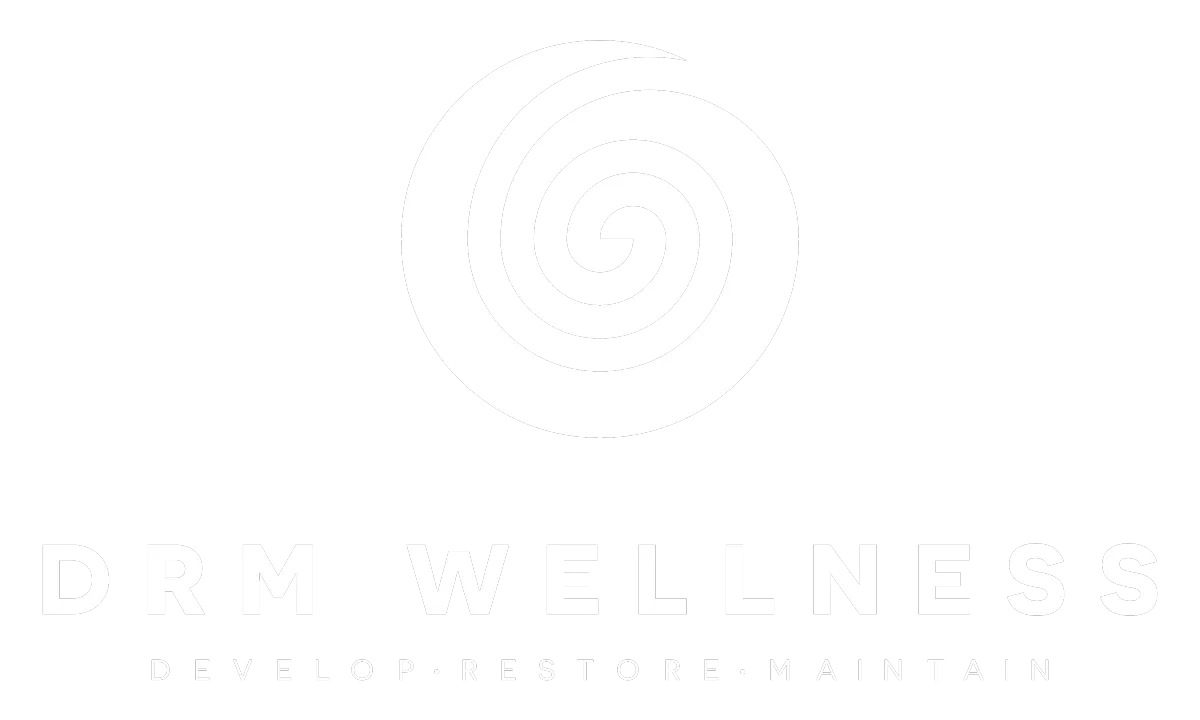
MEDICAL DISCLAIMER:
All information on this website is intended for instruction and informational purposes only. The authors are not responsible for any harm or injury that may result. Significant injury risk is possible if you do not follow due diligence and seek suitable professional advice about your injury.
No guarantees of specific results are expressly made or implied on this website.
Copyright © 2025 All Rights Reserved by DRM Wellness.
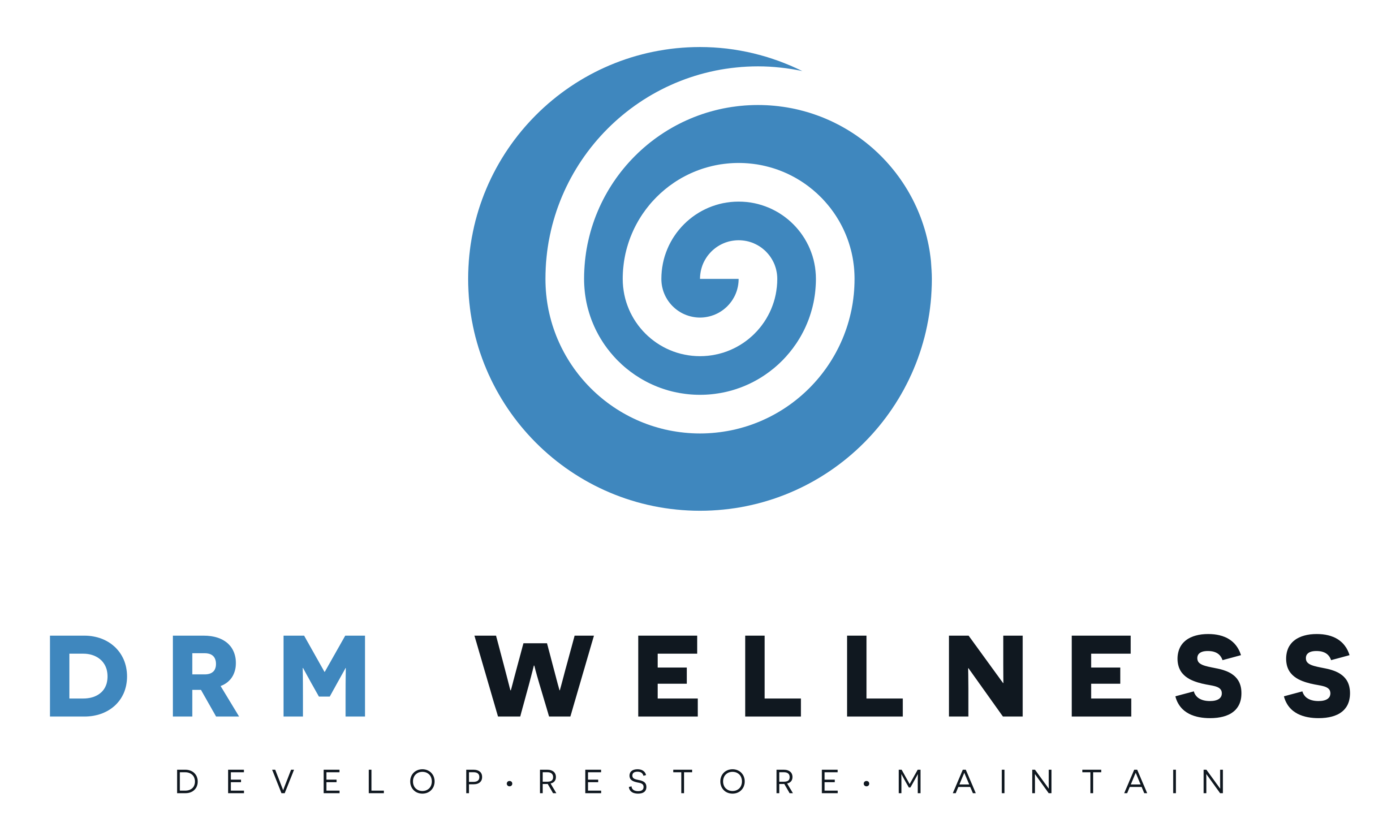
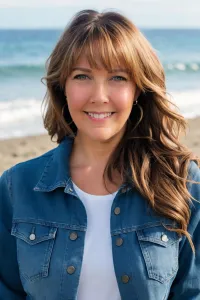
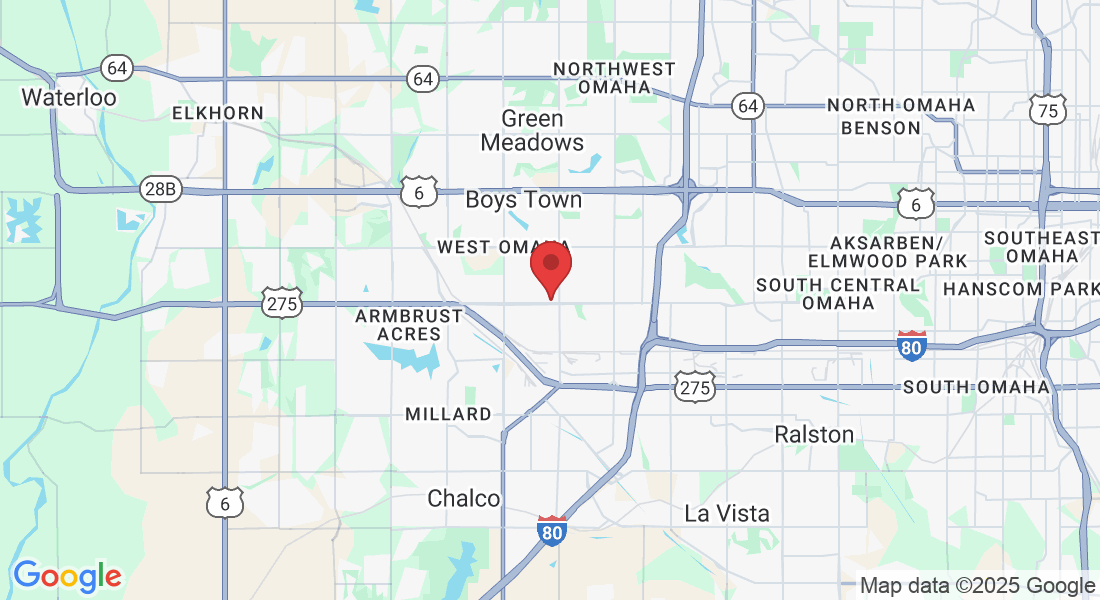
Facebook
Instagram
LinkedIn
Youtube
TikTok